Change can be a good thing…but, as all cat lovers know, it’s not necessarily an easy thing. Like many of us, cats like their routine, including their bathroom routine. But what if you’re considering switching cat litter brands?
Cats can be very finicky about their litter. Some cats like clay while others prefer the feel of pine, wheat, or corn litters. Finely grained litters are popular with some cats while others opt for larger particles. Besides the texture of the litter, the scent of the litter can be a factor in its success (and some cats don’t like deodorizing litter).
Would you like to switch your cat litter but you’re not sure how? Whether you are switching brands or changing types of litter, we’ve got some tips here to make the change easier on both you and your cats!
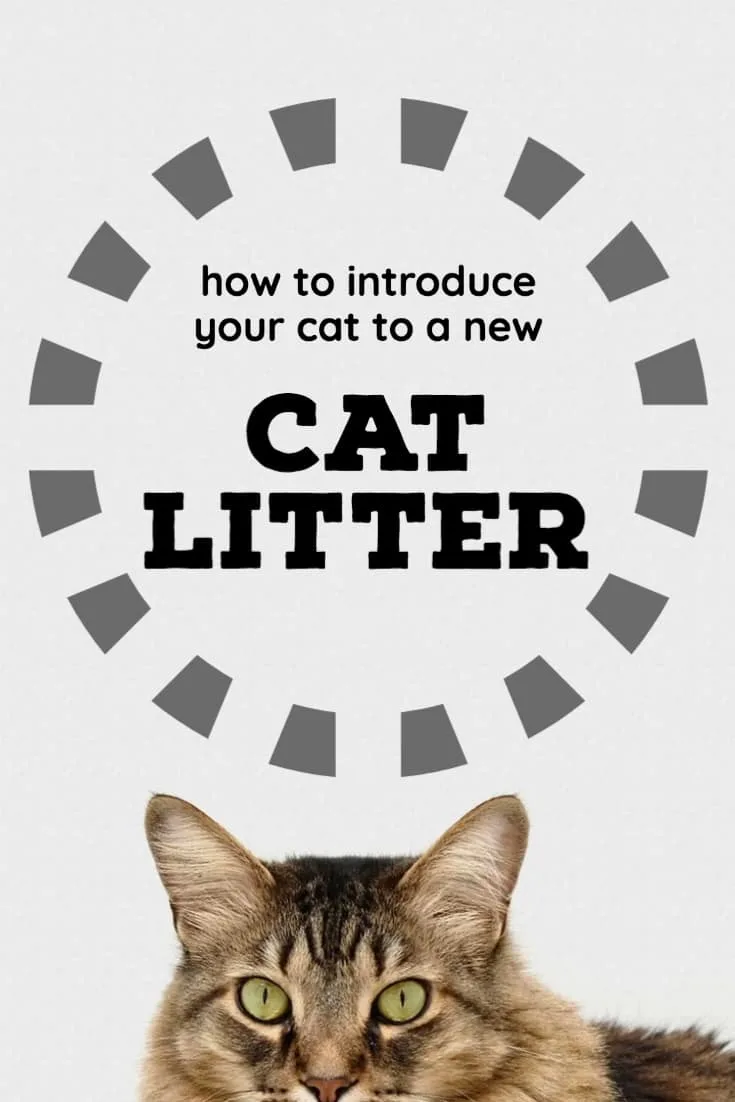
Why You Might Want to Change Your Cat’s Litter Brand
Many cat owners select a litter and stick with it, never switching to a different brand.
Others may decide that they’re due for a change, perhaps because a cat is no longer using the litterbox as she should. Once you rule out the chance of a medical problem (always talk with your veterinarian about sudden changes in litterbox habits), you may need to explore a new litter.
Other reasons for changing litters can range from difficulty in finding a favorite brand to the desire to be more eco-friendly.
The cat litter market is always growing and adding new options, too, so you may want to experiment with a litter that you think may result in less litter tracking by your cat or one that creates less dust.
Lightweight litters are also currently popular options to make shopping that much easier.
Should You Transition to a New Cat Litter Slowly or All At Once?
If your cat has been using a particular brand of litter, you’ll want to switch to the new brand slowly using the tips below.
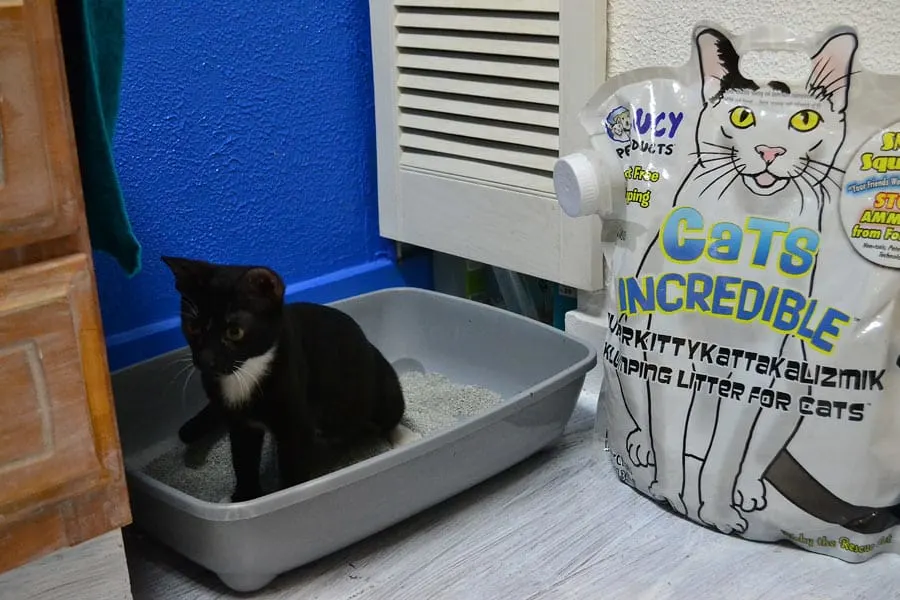
If you’ve recently adopted a new cat and don’t have an idea of what cat litter she had been using previously, then it’s fine to just start with your new litter.
If you are changing litter brands for a cat who has been using a litter for an extended time, once you decide to change to a new brand of litter, you’ll want to make the transition slowly. Be sure to keep the litterbox in the same location so the only factor you’re changing is the litter itself.
Offer multiple litterboxes with multiple litters.
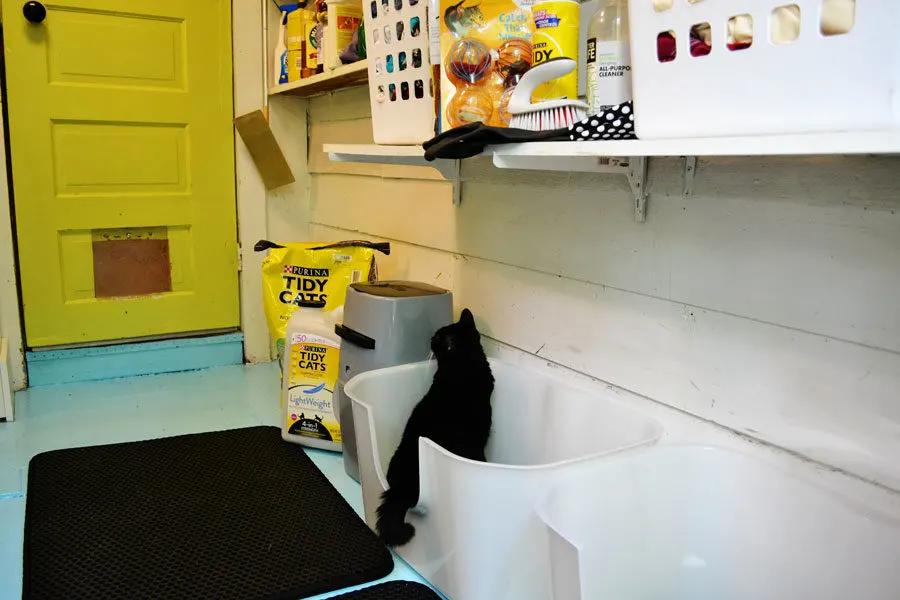
The general rule of thumb is that you need one litterbox per cat in your household PLUS one more.
Try the new litter in ONE of your litterboxes with your cat’s old litter brand in a second box.
Some cats will change litter brands easier than others. Watch for peeing outside the box or reluctance to enter the litterbox.
Once your new kitten seems to like the new litter without issue, you can make all your litterboxes the new brand (or, if different cats in your household have different preferences, you can use one litterbox for the old brand and put the new brand in your new brand.)
Multiple litterboxes can also be a great way to test out multiple types of litter. Are you looking for a natural option but you’re unsure if you want recycled newspaper, pine chips, wheat, corn, maize, and even nutshells?
Providing your cat with a selection of litters, each in its own box, can be a great way to let your cat give you the paws up on her favorite type of litter!
Mix the old with the new.
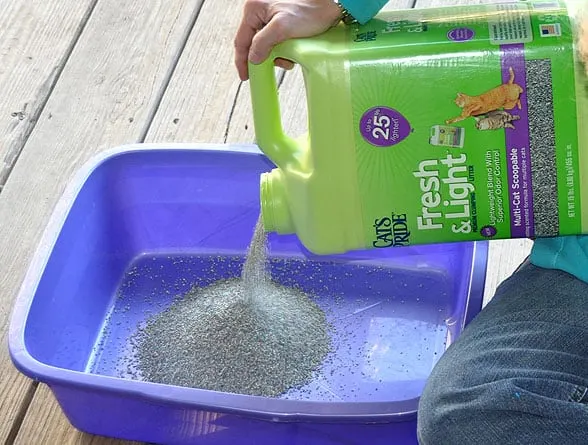
Some cats do well if you transition them from one litter to the next by gradually adding the new litter to other old over a three- or four-week period.
Mix in about one-fifth new litter with the old brand. Scoop the litterbox twice daily, as usual. With each change of the litterbox, add in a larger percentage of new litter to old so that, within about five box changes, you have transitioned to the new litter.
Are you short on the old litter brand? Another alternative is to use a bigger percentage of the new brand in the box but top it with the old brand, so your cat’s paws are walking on the old brand.
Add the old litter on top of the new.
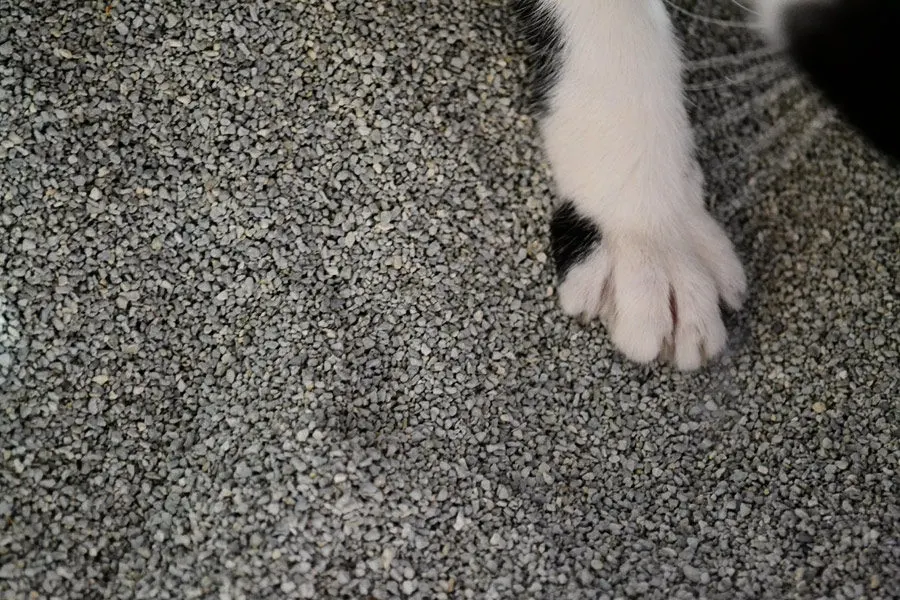
To provide the same tactile sensation that your cat is accustomed to, you can fill the litterbox with the new brand then TOP it off with a layer of the old brand.
Your cat’s paws will feel the familiar old litter when she steps in the box then be introduced to the new litter as she digs.
Switching Between Clumping and Non-Clumping Cat Litters
If you are switching between clumping and non-clumping litters, you’ll need to transition differently. A litterbox containing just a small percentage of clumping litter results in a mix that won’t clump at all.
To transition between a litter than clumps and one that doesn’t (or vice versa), provide your cat with two litterboxes, side by side.
Put one type of litter in each box and allow her to select her favorite. Once you see she’s using the new brand, you can then remove the box containing the old brand.
- 🎉 GIVEAWAY: Lord of the Pets Portrait of Your Cat! - November 26, 2024
- Review: Lord of the Pets Cat Portraits! - November 26, 2024
- Cat Adoption: FAQ You Might Have - June 28, 2024
